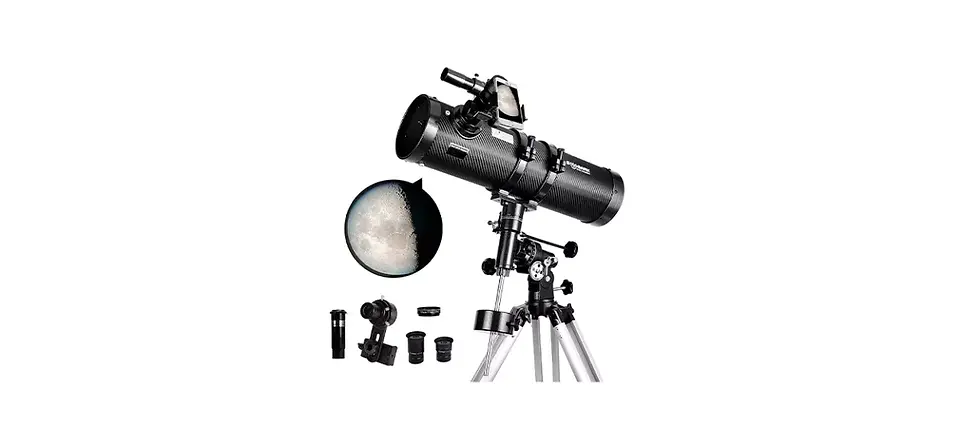Which is the best telescope in the world?
- Andrew Garner
- Dec 1, 2024
- 2 min read
Updated: Jan 3, 2025
If you're fascinated by the cosmos, you've probably wondered: Which is the best telescope in the world? The answer to this question is as vast as the universe itself because the "best" telescope depends on what you're looking for—literally!
From backyard stargazing to peering into the farthest reaches of the universe, telescopes come in all shapes and sizes, designed for different purposes. In this post, I'll break it down for you: the best telescopes for casual use, professional astronomy, and even those exploring the cutting edge of space science.
The Best Telescope for Beginners
When it comes to amateur astronomy, the best telescope is one that balances affordability, ease of use, and good performance.
The Celestron NexStar 8SE
This popular telescope is an absolute gem for hobbyists and beginner astronomers.
Aperture: 8 inches
Features: Fully computerized mount, easy setup, and superb image clarity.
Why it’s great: With its large aperture, you can explore the Moon, planets, and even deep-sky objects like nebulae and galaxies.

Get it from Amazon now: $1,299 & FREE Returns
The Best Telescope for Advanced Amateurs
If you've been stargazing for a while and are ready to take things up a notch, you'll want a telescope with advanced optics and better light-gathering capability.
Sky-Watcher EvoStar 120ED APO
This refractor telescope is a favorite among seasoned hobbyists who love astrophotography and visual astronomy.
Aperture: 120mm
Why it’s great: Its apochromatic optics reduce chromatic aberration, providing crisp, true-color views of celestial objects.
Ideal for: Capturing stunning images of the Moon, planets, and even galaxies.

Get it from Amazon now: $1,999 & FREE Returns
The Best Telescope in Professional Astronomy
Professional astronomers rely on massive, state-of-the-art telescopes to unravel the mysteries of the universe. While you can’t exactly buy these for your backyard, they’re awe-inspiring marvels of technology.
The James Webb Space Telescope (JWST)
Launched in December 2021, the James Webb Space Telescope has revolutionized astronomy.
Purpose: Observing the formation of stars, galaxies, and even exoplanets with unprecedented detail.
Features: Infrared vision, a 6.5-meter mirror, and the ability to peer into the early universe.
Why it’s the best: It’s essentially a time machine, helping us see objects billions of light-years away.

So, Which is the Best Telescope in the World?
The "best" telescope depends entirely on your needs:
For beginners, the Celestron NexStar 8SE is hard to beat.
For advanced amateurs, the Sky-Watcher EvoStar 120ED APO offers exceptional value and quality.
For professionals, the James Webb Space Telescope is rewriting the rules of astronomy.

Final Thoughts
Whether you’re just starting to explore the night sky or you’re a seasoned astronomer, the best telescope is the one that fits your goals, budget, and interests. Remember, no telescope can show you everything—but with the right one, you can unlock breathtaking views of the cosmos.
Let me know in the comments—what’s your dream telescope?



Our impartial review finds Casiny Casino to be a developing platform with room to grow. The bonus offers are fair, but we found the wagering terms to be less favorable than some competitors. Its game variety https://www.pwinsider.com/article/202051/casiny-bonus-unlock-your-welcome-offer-in-australia.html is acceptable, though it doesn't feature as many titles as established brands. Payments are handled reliably, with a good selection of modern options available.